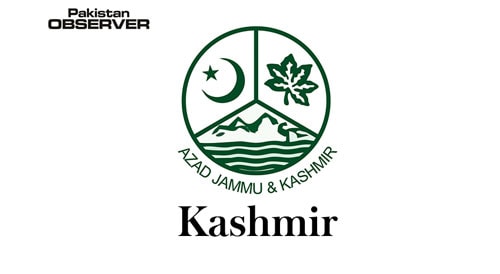Arshid Hussain, 67, for the past 50 years always makes sure to reach the historic Jamia Masjid early in the Friday morning to sit in the front row and listen to the sermon intently. Not anymore.
For the past two years, Hussain had to shelve his five decade old habit owing to the curbs imposed by the authorities to allow religious gathering in the mosque.
“I have grown old in this Masjid. I am attached to it. Apart from coming here on every Friday, I spent an entire month of Ramadan in the mosque,” Hussain said.
Disgruntled, Hussain said that it is heart-wrenching for him to see big padlocks on the main gates of the Masjid. “I feel restless. Being a Muslim seems a big sin for the ruling authorities here,” he said.
The continuous crackdown on religious gathering at the historic Jamia Masjid has put a big question mark on the administration as people have started raising questions about undermining their constitutional right to religious freedom in the valley.
Authorities today (on October 15) didn’t allow Friday prayers to be held at Jamia Masjid for the straight 10th week enraging the worshippers who had travelled from different places of the city for the mandatory congregational prayers.
Talking with The Kashmir Walla, the worshippers said that barring them from offering prayers is a “direct onslaught” on their religious freedom.
“When all the other activities are allowed why only Friday prayers are barred. What kind of humanity, democracy is this, in which people are not allowed to practice their religion,” a worshipper said.
The worshippers said that they will hit the streets if authorities continue to stop them from offering prayers.
“We are not allowed to pray in our own mosques,” an agitated devotee said. “Yesterday, it was announced that Friday prayers will be held from today.
However, soon after we started reciting the Naat, the police barged into the mosque and disallowed the prayers.”
The worshippers said that the authorities should allow prayers in all shrines and mosques.
“We used to follow all Covid SOPs while praying. But now the authorities have stopped it entirely,” they said.
Situated at Nowhatta in the middle of the old city, Jamia Masjid was built by Sultan Sikandar in 1400 AD under the order of Mir Mohammad Hamadani son of Shah Hamdan. Later, the son of Sultan Sikandar, Zain-ul-Abidin got the mosque extended.
The attractions of the Masjid include beautiful Indo-Saracenic architecture, a magnificent courtyard and 370 wooden pillars.
There is a perfectly square garden in the middle and the mosque is surrounded by wide lanes on all the four sides. Jamia has a capacity to accommodate more than 33,333 people offering prayer at a time.
However, during bigger religious gathering, the mosque and its surroundings have a capacity to accommodate about 100,000 people.
On August 6 last year, Friday prayers were resumed at Jamia Masjid after remaining suspended for more than three months following rise in Covid-19 cases in the valley.
However, after a fresh order that only 25 people are allowed in a gathering, the mosque was again closed on August 13 for Friday prayers.
In an official handout, Anjuman Auqaf Jamia Masjid said that the authorities did not allow congregational Friday prayers to be held at Jamia Masjid today.
“Heavy deployment of forces was carried out since early morning in the entire area. When the Auqaf employees opened up the gates of the mosque police personnel forced them to close them and no namazis were allowed inside the mosque for offering the obligatory Friday prayers,” Anjuman said.
“A large group of namazis including women and children who had gathered outside the mosque strongly protested this authoritarian move and demanded that they be allowed to go inside the mosque to offer prayers, but to no avail,” Anjuman said.
Anjuman said that the earlier pretext of COVID pandemic by the authorities to prevent Muslims from offering Friday prayers at Jamia Masjid stands completely exposed today.
“It is extremely unfortunate and disdainful of the authorities to disallow Muslims of the valley from praying at the Central mosque by use of brute force and cause then hurt and grief. Muslims of the valley denounce this injustice and interference in religious freedom in strongest terms,” the Anjuman said while registering their protest.
On October 13, Anjuman Auqaf Jamia Masjid had decided that in view of the occasion of the blessed birth of the holy Prophet Muhammad (SAW), the grand mosque will be opened for Friday prayers on 15 October, 2021 under strict observance of COVID-19 SOPs and guidelines.
Meanwhile, a senior police official said that, “they are only following the order from the higher-ups.”
Deputy Commissioner Srinagar, Aijaz Asad didn’t respond to the calls and messages to comment on the issue.
However, this is not the first time that the authorities have banned prayers at the historic mosque.
During uprising in 2008, 2010 and 2016, the mosque remained closed for at least 250 days in those three years.
Post August 5, 2019, when entire Kashmir was put under a strict curfew after Government of India’s (GoI) unilaterally revoked special status of Jammu and Kashmir, Jamia Masjid was closed for routine prayers for the consecutive 136 days.
Jamia Masjid was not only the biggest religious centre of Kashmir, its pulpit has always represented the political aspirations of Kashmiris as well.
Every Friday, Hurriyat Conference (M) chairman Mirwaiz Umar Farooq, head priest, devotes time to talk about Kashmir issue and aspires for its peaceful resolution as per the wishes of its people.
—Courtesy: The Kashmir Walla









